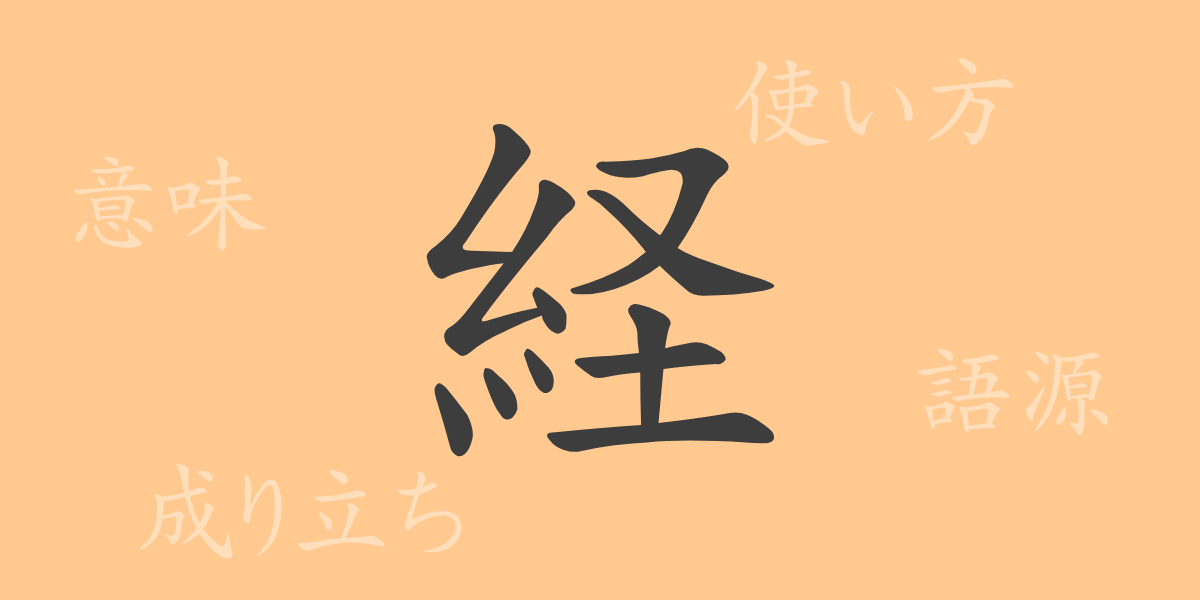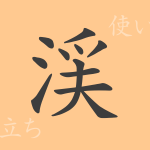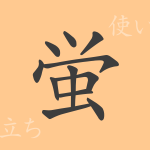Japanese is rich with numerous kanji, each carrying its own unique history and meaning. One of these kanji, “経(けい),” is deeply ingrained in Japanese daily life and culture. This article explores the origins of “経,” its various uses, and the rich world it represents.
Origin of 経(けい) (Etymology)
The kanji “経(けい)” originated from ancient China, evolving from a pictogram representing a “spinning wheel” for winding thread. Over time, the character came to mean “to pass through” or “to go by,” and it now encompasses various concepts such as “experience” and “economy.”
Meanings and Uses of 経(けい)
The kanji “経(けい)” means “to pass through” or “to go by,” indicating the passage of time or movement through space. When used in words like “経済(けいざい)” (economy) or “経験(けいけん)” (experience), it often refers to the essence or process of things. In Japanese, “経(けい)” is used in many aspects of life, showcasing its broad range of applications.
Readings, Stroke Count, and Radical of 経(けい)
The kanji “経(けい)” has multiple readings depending on its usage.
- Readings: On’yomi (Chinese reading) is “ケイ(kei)” or “キョウ(kyou),” and Kun’yomi (Japanese reading) includes “へ.る(heru),” “た.てる(tateru),” and “たて(tate).”
- Stroke count: The kanji “経(けい)” consists of 11 strokes.
- Radical: The radical of “経(けい)” is 糸部(いとへん), which signifies thread or string.
Idioms, Expressions, and Proverbs Using 経(けい)
There are many idioms, expressions, and proverbs that include “経(けい).” Here are a few examples:
- 経済(けいざい): Refers to the activities or state of production, distribution, and consumption of goods.
- 経験(けいけん): The act of directly experiencing something to gain knowledge or skill.
- 経歴(けいれき): The personal history of someone’s career or academic background.
- 経緯(けいい): Detailed circumstances or the course of events.
- 経営(けいえい): The management and operation of businesses or organizations.
- 経典(きょうてん): Religious texts, often used in the context of Buddhist scriptures.
Conclusion on 経(けい)
The kanji “経(けい)” has evolved over time in both its form and meaning. In modern Japanese, it is used in a wide range of words, from economy to experience and scriptures. Words that include “経(けい)” are closely tied to our daily lives and significantly influence Japanese culture and thought. This single character reveals not just the meaning of a word, but also the history and values of the people who use it.

























